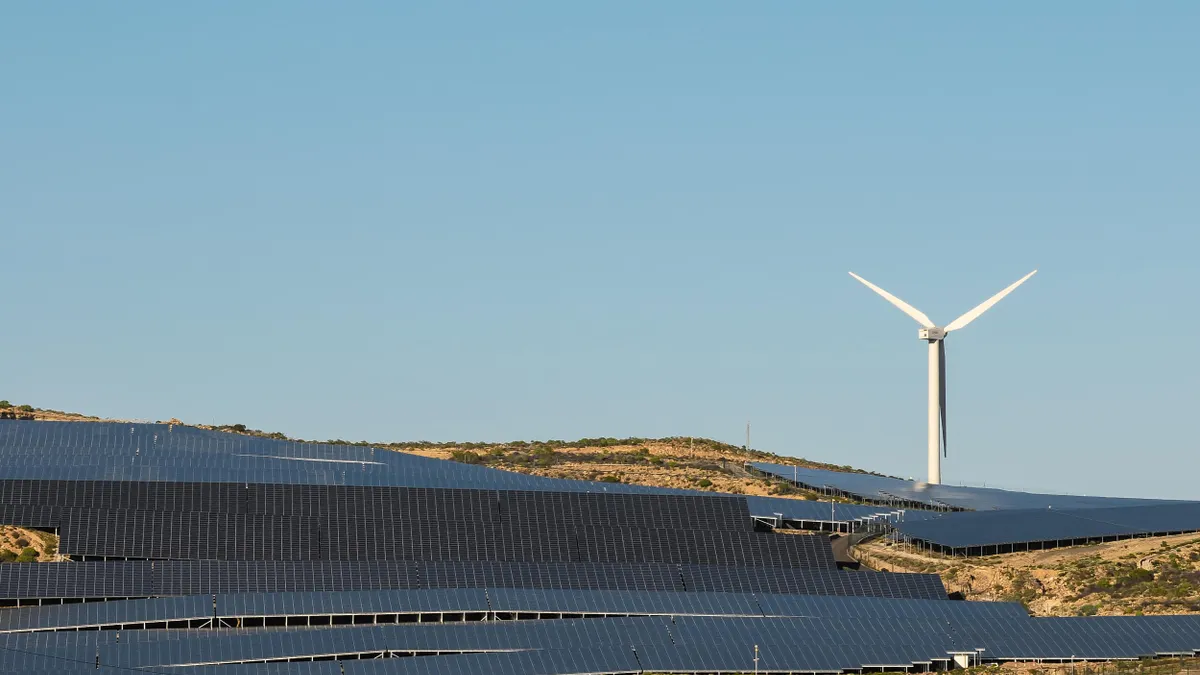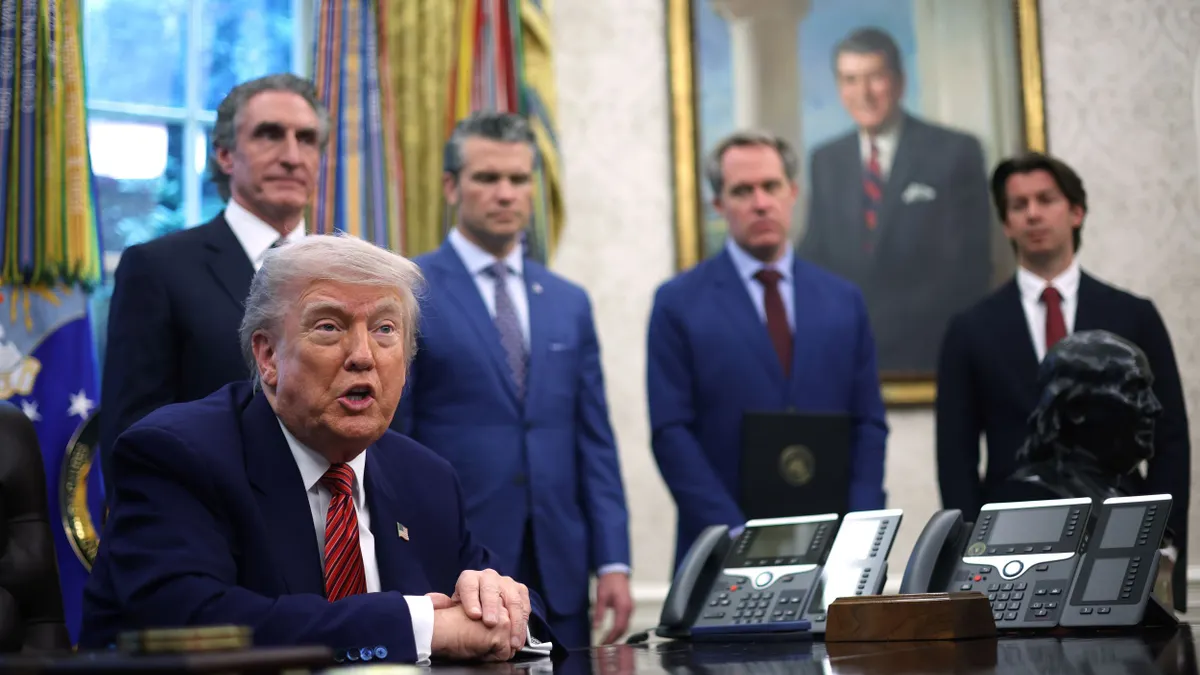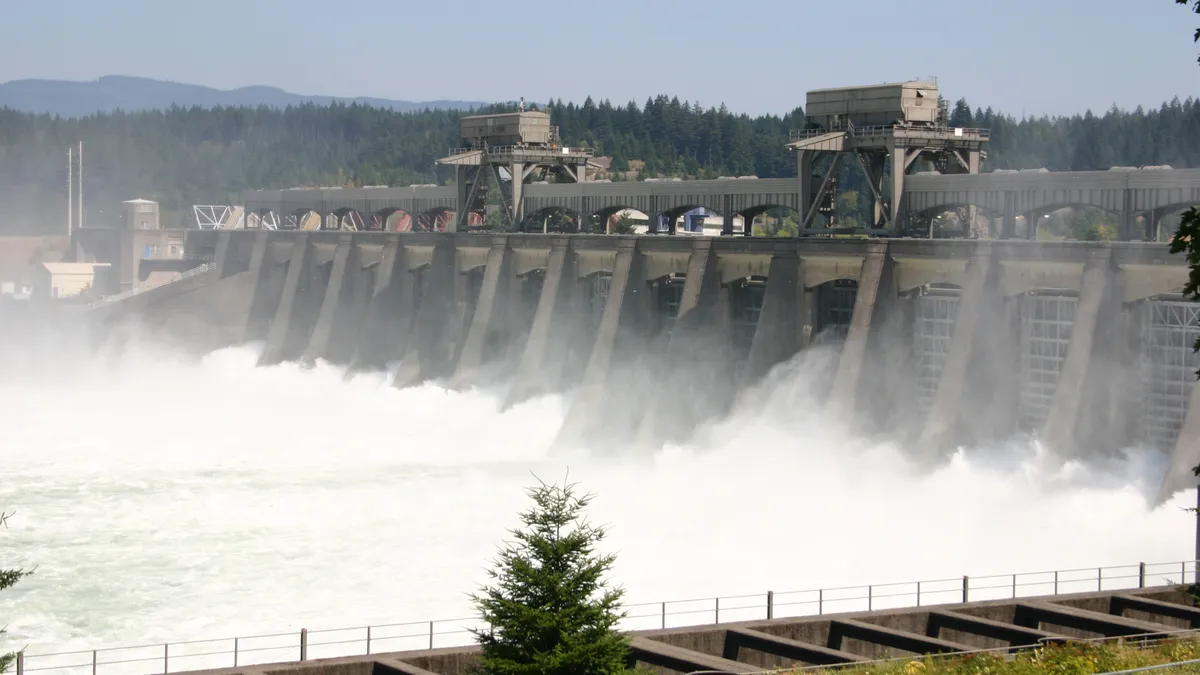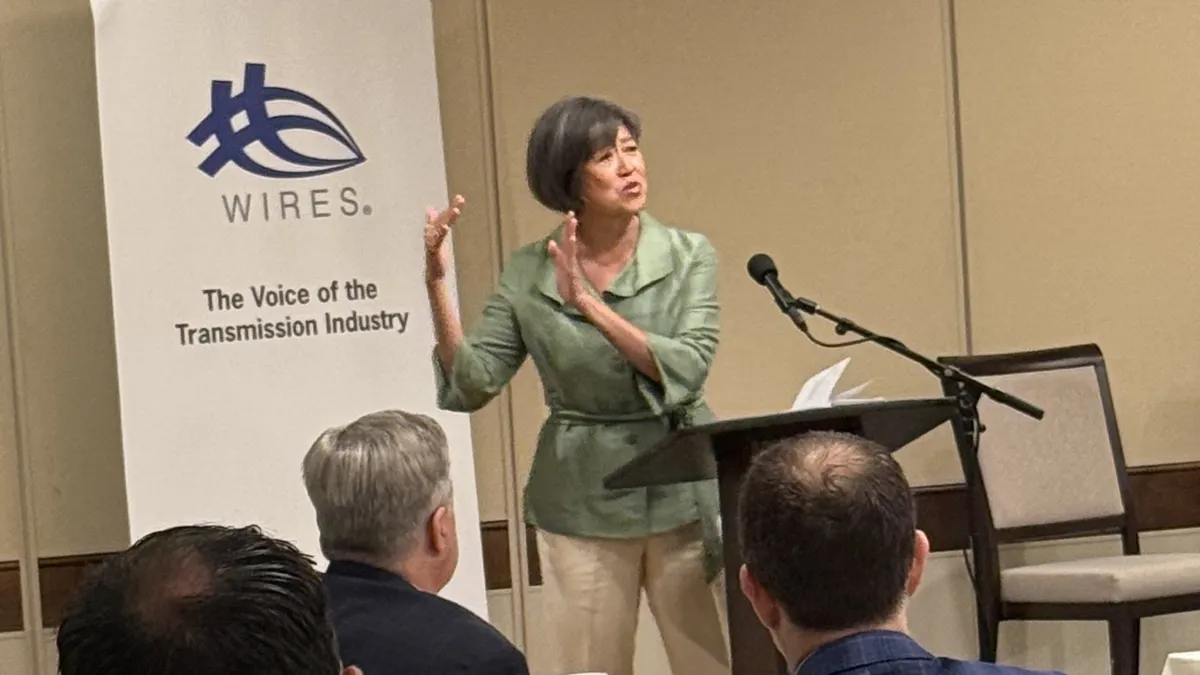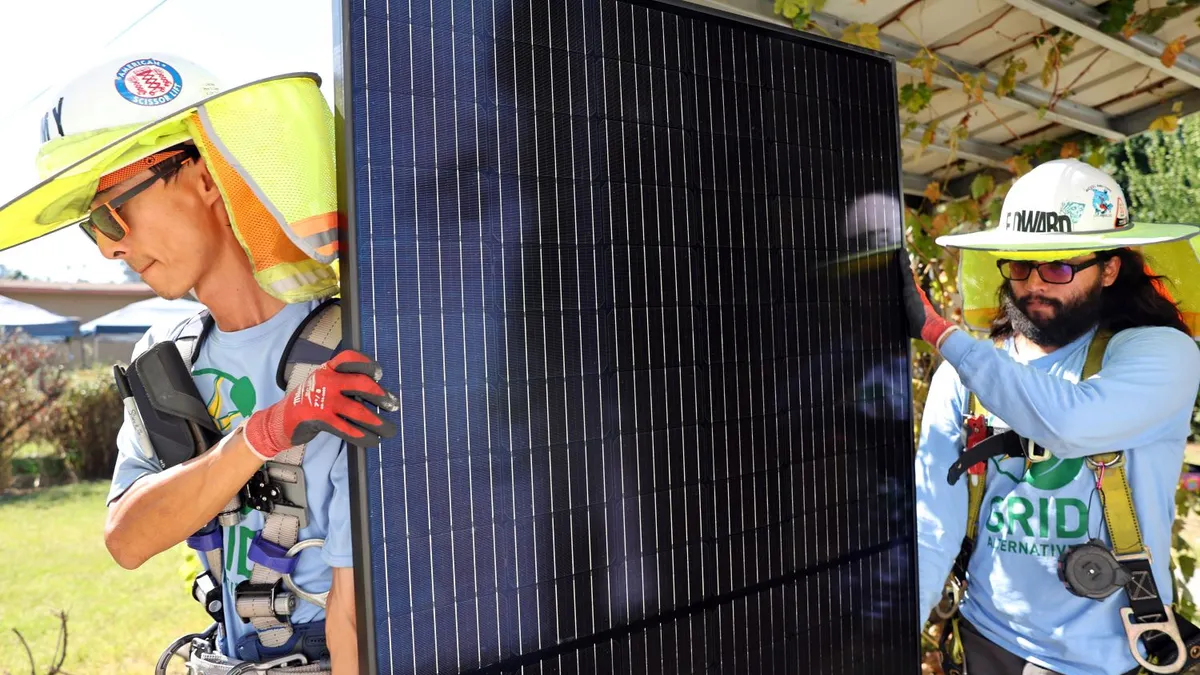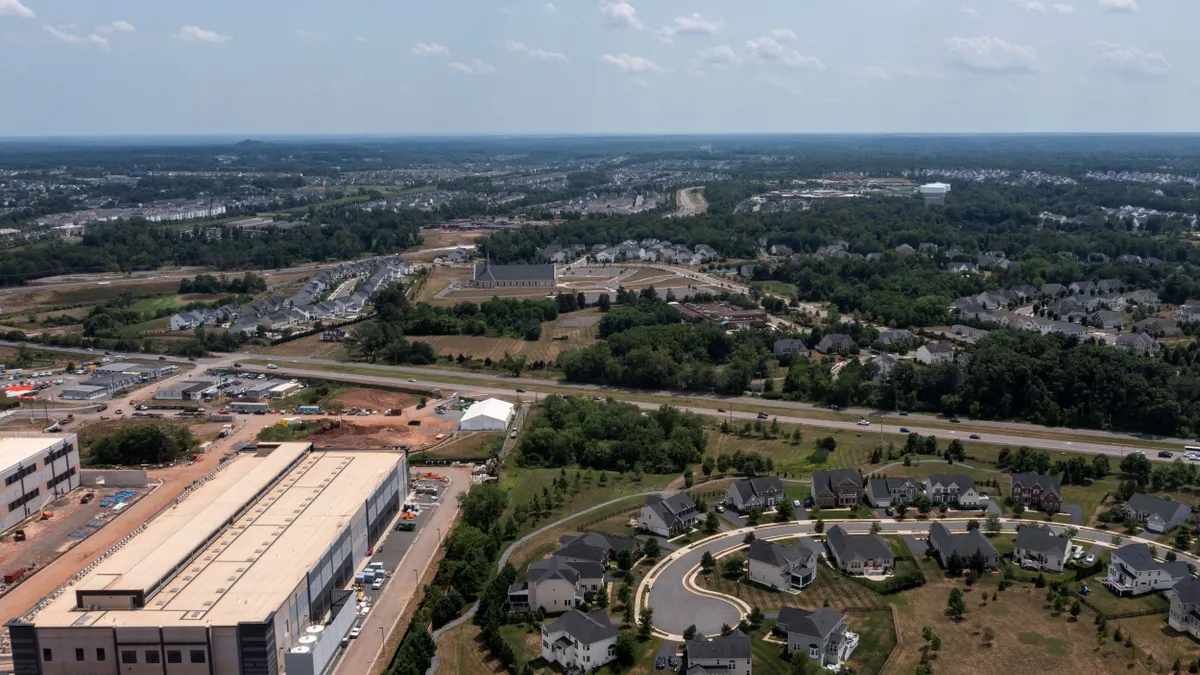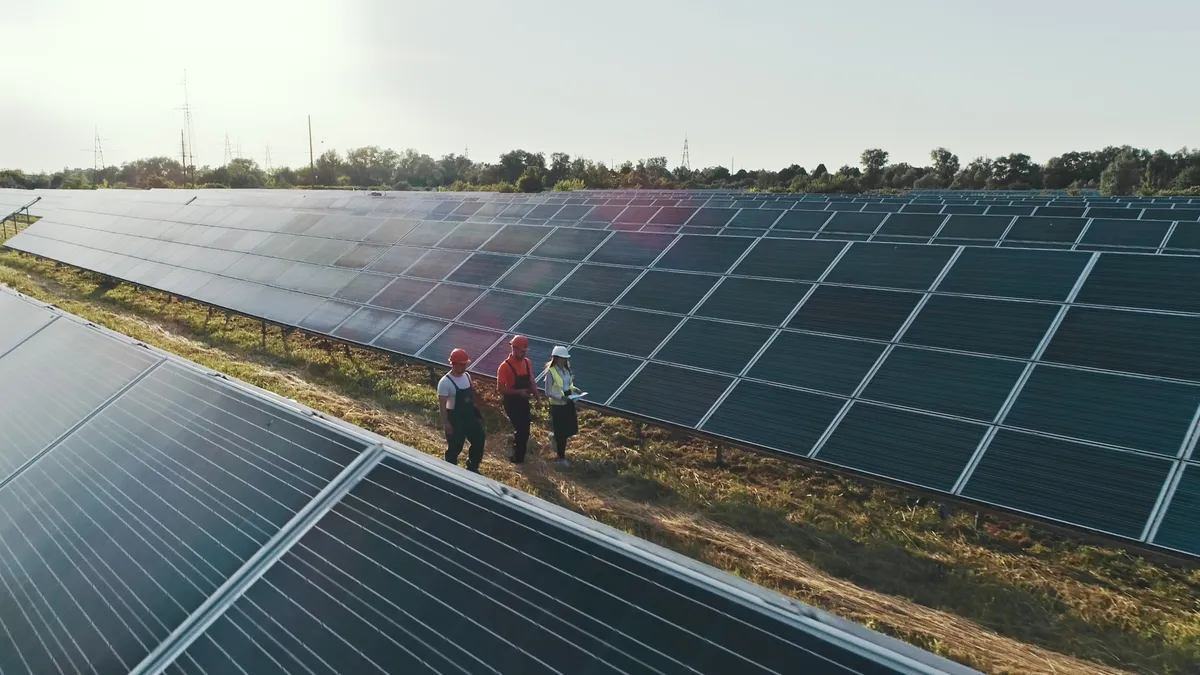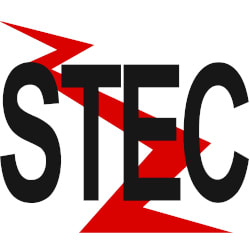Conservative Supreme Court Justice Antonin Scalia died a year ago yesterday, leaving a vacancy on the high court that ultimately morphed into a high-stakes political battle.
Republican's blocked then-President Barack Obama's nominee, the moderate Judge Merrick Garland, refusing to give him a hearing. Then Democrats lost the election, and now President Donald Trump has made his own nomination.
For Democrats, it's a sticky situation. Trump's choice of Judge Neil Gorsuch would be a reliably conservative vot, but because he is well-respected for his work on the 10th U.S. Circuit Court of Appeals, many say he would be hard to reject.
Gorsuch is "a very natural choice for any Republican president to nominate as a replacement for Scalia — someone who would espouse similar principles, stand firm on similar doctrinal commitments, reach similar outcomes, and even fill a similar role as one of the court’s most articulate defenders of conservative judicial theory," Eric Citron, a partner at Goldstein & Russell, wrote at SCOTUSblog.
But Democrats are still stinging from the denial of Garland, and there are many in the party who want to oppose Gorsuch. Trump has yet to lose any nomination he's put forth, and there have been calls for a filibuster, including from environmental groups who want to take a stand.
Should that happen, Republicans could push the nomination through on a simple majority vote by changing Senate rules — the so-called "nuclear option," which Trump has endorsed.
Either way, many observers say Gorsuch is likely to be confirmed, leaving the energy space to consider how he might rule. The Supreme Court has recently decided several high-profile energy cases, and Obama's Clean Power Plan appears to be heading there as well — though the it is unlikely Trump's administration would defend it as written.
Tony Clark, a former FERC commissioner and now a senior advisor at Wilkinson Barker Knauer LLP, said there just isn't a huge body of Federal Power Act or Natural Gas Act cases over which Gorsuch has presided, leaving some open questions about future decisions.
"It's a little hard to tell, because so many of FERC rulings will go straight to the D.C. Circuit," said Clark. "But to the degree you believe he's someone who tends to be a textualist and originalist, it probably means that in terms of the readings of those laws you might look to someone like a Scalia, which probably means sticking to the text of the statute itself and not reading it expansively."
That's largely the consensus: that Gorsuch lacks a large body of specific energy- or environment-specific cases, but is expected to be very conservative. Even so, the SCOTUS nominee has ruled on two key issues that are expected to expect energy policy — Chevron deference and the dormant Commerce Clause.
"In any normal time -- and we're obviously not in a normal time in terms of how the Senate is functioning — but in any normal time you would say, 'Here is a judge who is imminently qualified to be a justice on the Supreme Court,'" said Clark. "I think he'll get there eventually, barring something out of left field that no one anticipates."
Commerce and Chevron
Denise Bode, a partner Michael Best Strategies and previously CEO of the American Wind Energy Association, notes that a lack of Gorsuch writings on energy issues shouldn't be construed as unfamiliarity with the issues. The 10th Circuit operates in Oklahoma, Kansas, New Mexico, Colorado, Wyoming, and Utah: states known for production of fossil fuels as well as renewable energy.
"Usually the federal judiciary in our neck of the woods has had opportunities to know a lot about the energy space," said Bode, also a former regulator on the Oklahoma Corporation Commission. "The 10th Circuit is in one of the big areas where we have a significant amount of oil, natural gas and renewables, and the Southwest Power Pool, ERCOT and other RTOs and reliability organizations do business in that area."
The first insight into likely Gorsuch rulings can be found in his opinion of the so-called Chevron doctrine, a concept of deferring to agency interpretation. Named after a 1984 case Chevron v. NRDC, the principle calls for courts to defer to interpretations of laws made by government agencies charged with enforcing them, unless those interpretations are blatantly unreasonable.
Chevon is often cited with regard to energy and environmental issues, particularly around the Clean Power Plan and whether deference to the EPA's interpretation of the Clean Air Act allows for carbon restrictions at power plants. But conservative judges have ruled that in some areas of law there is no deference, and Gorsuch is on the record as having his doubts about the doctrine.
Clark said Gorsuch has "indicated some skepticism about Chevron, and that just wouldn't apply to FERC and energy policy but across administrative agencies."
Writing a concurrence in an immigration case, Gorsuch said that Chevron permits "executive bureaucracies to swallow huge amounts of core judicial and legislative power and concentrate federal power in a way that seems more than a little difficult to square with the Constitution of the framers’ design."
Both Scalia and Gorsuch "tend to very strict interpretations of the Constitution," said Bode. But Scalia had a broader interpretation of the Chevron doctrine, while Gorsuch "has a much stricter view on that, or if there even should be such a doctrine."
And as Ann Carlson, a professor at the UCLA School of Law, points out on the Legal Planet blog, "environmental law is filled with places where the implementing agency ... must interpret ambiguous statutory provisions.
Read more analysis of the Chevron doctrine in Utility Dive's coverage of the EPA’s Mercury and Air Toxic Standards rule here.
While a limited view on Chevron would seem to favor energy companies fighting government regulation, Gorsuch's other important view would tend to go the other way.
In 2015 he authored the opinion in ELEnergy and Environmental Legal Institute v. Epel, in which the court upheld Colorado's renewable portfolio standard against a challenge from coal producers that it would hurt their businesses.
The controlling concept there is the dormant Commerce Clause, a legal concept the courts say is implied by the Constitution granting the federal government the right to regulate interstate trade. The implicit idea is that states cannot pass laws which restrict interstate trade. But in the ELEnergy case, Gorsuch rejected the idea that Colorado's 20% RPS singled out coal producers, and upheld the state's environmental plan.
Gorsuch's opinion indicates doubts about the concept of the dormant Commerce Clause. And if he does not give it much weight, said Carlson, "several state policies that potentially raise Commerce Clause issues, like Renewable Portfolio Standards, could have a friend on the High Court."
Look ahead to the Clean Power Plan
The Clean Power Plan is still being considered by the D.C. Circuit Court, and review by the U.S. Supreme Court is still a possibility even though the change in administration likely means drastic changes to approach or strategy. Review of the carbon rules and Gorsuch's nomination appear to be on parallel tracks, and it's possible he could be confirmed in time to consider the case.
But Clark called some of the speculation an "academic exercise," given the election of Trump and the likelihood of Oklahoma Attorney General Scott Pruitt being confirmed as EPA administrator. Pruitt has filed multiple lawsuits challenging the EPA's authority and is a staunch opponent of the Obama administration's carbon rules.
"The Clean Power Plan, one way or another is going to be very, very different," Clark said. "In the near term CPP is probably a dead letter, one way or another."
Two dozen states have called on Trump to scrap the plan by issuing an executive order instructing the U.S. Environmental Protection Agency to not enforce the rule. "There's been a lot of discussion about whether the CPP is in essence dead, and people have offered up very different ways of killing it," said Bode.







